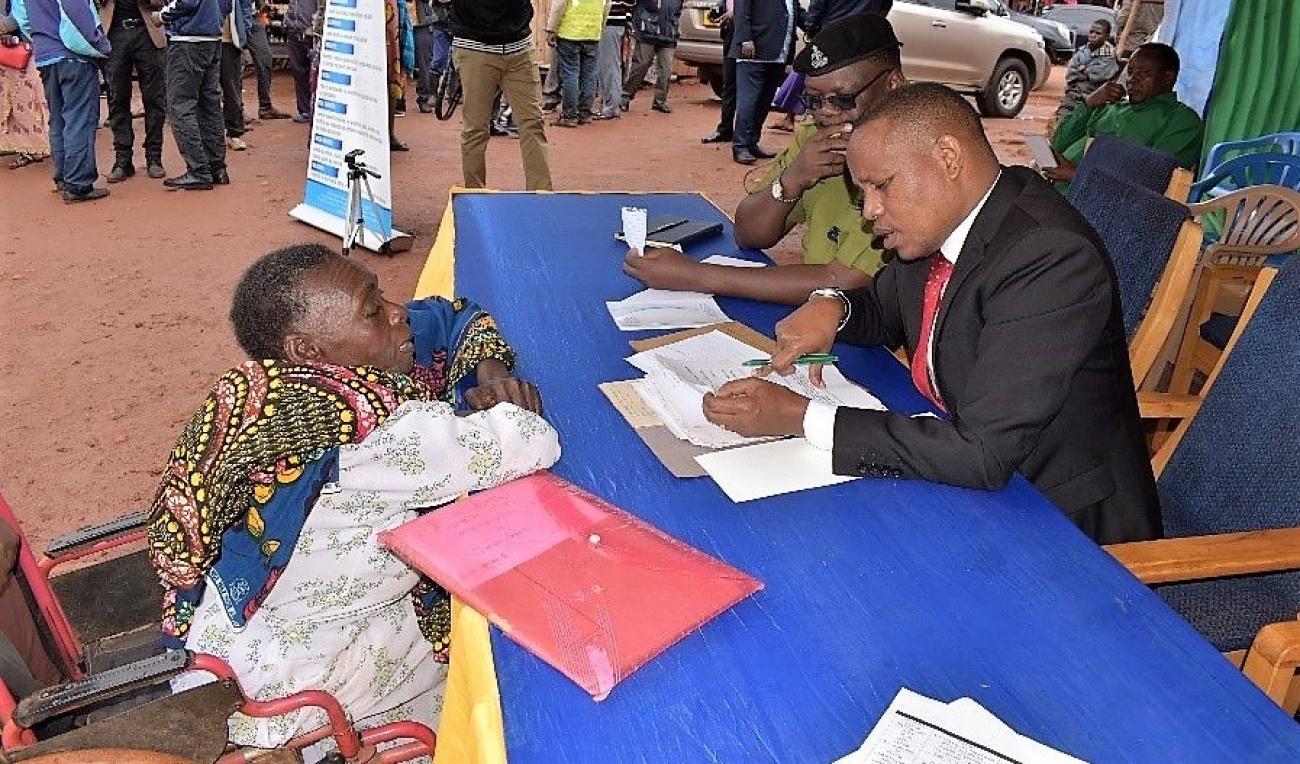In Arusha, UN Women and the Ministry of Health, Community Development, Gender, Elders and Children co-organized the first Training of Trainers that focused on highlighting the need to incorporate gender dimensions in mental health, gender-based violence, and psychosocial support services.
This week-long training aimed to build the capacity of trainers to effectively provide gender-responsive essential services for survivors of gender-based violence, offer mental health and psycho-social support, and address the various needs of women, girls, men and boys, and their communities affected by the third wave of the COVID-19 pandemic.
A total of 33 social welfare officers and psychologists from the Ministry of Health, Institute of Social Work, Tanzania Social Workers Association, Segerea Correctional Services, and community development and health care workers participated in the workshop.
According to the UN Women Programme Specialist for Ending Violence Against Women (EVAW), Ms. Lucy Tesha, providing GBV, mental health and psychosocial support is a critical life-saving service during the COVID-19 response as it ensures psychological wellbeing of patients, families, and care providers.
“Through effective service provision, psychosocial challenges such as fear, stigma, and social exclusion are reduced. Survivors of gender-based violence can receive counselling support and referred for other services such as health and legal aid,” Ms. Tesha said.
In the last five years, the Government of Tanzania has made significant progress in increasing coverage and access to psychosocial care and GBV services, working with various partners, including UN Agencies, the private sector, and other non-governmental organizations. The COVID-19 emergency has further necessitated multi-stakeholder collaboration to expand prevention and response efforts through the Mental Health and Psychosocial Support Pillar of the COVID-19 National Response Task Team.
The Training of Trainers facilitated the development of a new Mental Health and Psycho-Social Support training manual, which is going to help address the gaps in the delivery of mental health and gender-based violence essential services. The Head of the Mental Health and Substance Use Division of the Ministry of Health, Dr. Shadrack Buswelu Makubi, said the partnership will support trainers to impart skills to other service providers for improved handling of cases.
“For example, as they deliver essential services, we would like the trainers to support others to be able to identify the symptoms of mental health including excessive paranoia, anxiety, sadness, mood swings, and poor sleeping habits,” Dr. Makubi said. He further explained the need to segment groups of people based on their level of vulnerability and gender, and to understand the associated factors and risks for them to know how to respond and care for different conditions.
“Importantly, we would also like this training to do more in terms of improving handling of gender-based violence cases, as GBV is one of the primary causes of mental health challenges among women and girls,” Dr. Makubi said.
He shared some strategies to help improve handling of cases including conducting gender-sensitive and non-judgmental discussions with families and survivors of gender-based violence, and with other groups of people seeking psycho-social support. He emphasized strengthening partnerships with families of survivors. “Partnering with families will ensure that treatment and support continues well beyond the services delivered in care facilities. It is important that the family does not blame the survivor to ensure a positive response to treatment and recovery,” he said.




